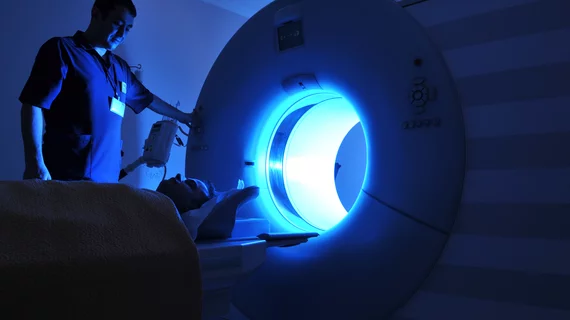GE HealthCare's new MRI contrast agent advances to clinical trial
GE HealthCare is developing a new magnetic resonance imaging contrast agent that can be substituted for standard gadolinium-based contrast agents (GBCAs).
Experts are hopeful that the first-of-its-kind injectable manganese-based macrocyclic agent will offer a suitable alternative to GBCAs, as it can be more efficiently eliminated from the body. For decades, the safety of GBCAs has been a topic of heated debate, with some experts cautioning that gadolinium retention poses risks to patients, and others maintaining that it is perfectly safe when utilized in moderation.
The new agent could eliminate these concerns, as manganese is a trace element that naturally occurs in, and is eliminated from, the body. It also is said to have comparable relaxivity to traditional GBCAs, which suggests that it could offer similar image quality.
The imaging agent is the subject of a new clinical trial that just completed its phase 1 subject recruitment in its early clinical development program. The trial is based at the clinical research unit at the Oslo University Hospital in Rikshospitalet, Norway.
Research related to the agent’s impact safety profile, including how it is eliminated from the body in healthy individuals, is being led by Hasse K. Zaré, MD, PhD.
In a prepared statement on the latest trial development, Paul Evans, PhD, head of Global R&D at GE HealthCare’s Pharmaceutical Diagnostics unit, said: “This manganese-based MRI agent is one of a number of novel agents we have at various stages of development in our innovation pipeline, all of which aim to give practitioners more choice in delivering precision care for their patients.”
To learn more, click here.

